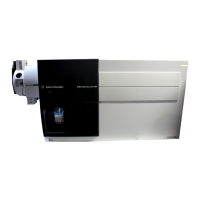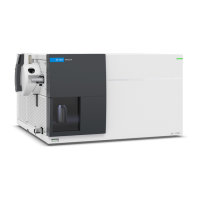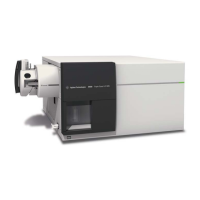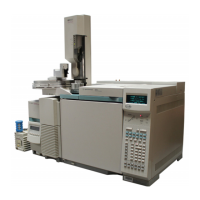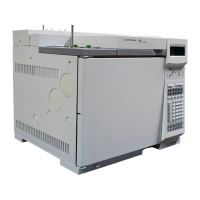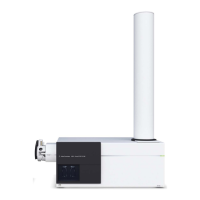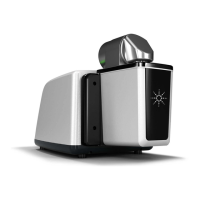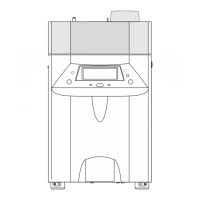26 Agilent 6400 Series Triple Quad LC/MS Concepts Guide
2 Inner Workings – Triple Quadrupole MS versus Single Quadrupole MS
Innovative Enhancements in the 6460 Triple Quadrupole
The desolvated ions then enter the mass spectrometer via an
innovative resistive and highly inert capillary transfer tube
(denoted as 2 on the 6460 in Figure 7 on page 22) that improves
ion transmission and allows virtually instantaneous polarity
switching.
Further improving the sensitivity is improved pumping in
vacuum stage 2 that allows more pumping speed behind the
skimmer and improved ion capturing by first octopole (denoted
as 3 on the 6460 in Figure 7). The ions next pass through optics
and into the first quadrupole analyzer. The quadrupole analyzer
consists of four parallel hyperbolic rods through which selected
ions based on their mass to charge ratio are filtered.
The ions passing through the first quadrupole analyzer are then
directed through an improved collision cell where they are
fragmented. The collision cell is typically called the second
quadrupole, but in this case, geometrically it is actually a
hexapole filled with nitrogen, the same gas that is used as the
drying gas. Agilent innovation has led to the design of a
collision cell that has axial acceleration for high speed MS/MS
analysis (denoted as 4 on the 6460 in Figure 7). Fragment ions
formed in the collision cell are then sent to the third
quadrupole for a second filtering stage to enable a user to
isolate and examine product ions with respect to precursor
ions.
Finally, the ions that pass through the third quadrupole are
detected using a high energy detector. A second turbo pump has
been added (denoted as 5 on the 6460 in Figure 7) to increase
pumping speed and improve the vacuum which will further
improve the signal to noise and enhance the limit of detection of
the triple quadrupole.

